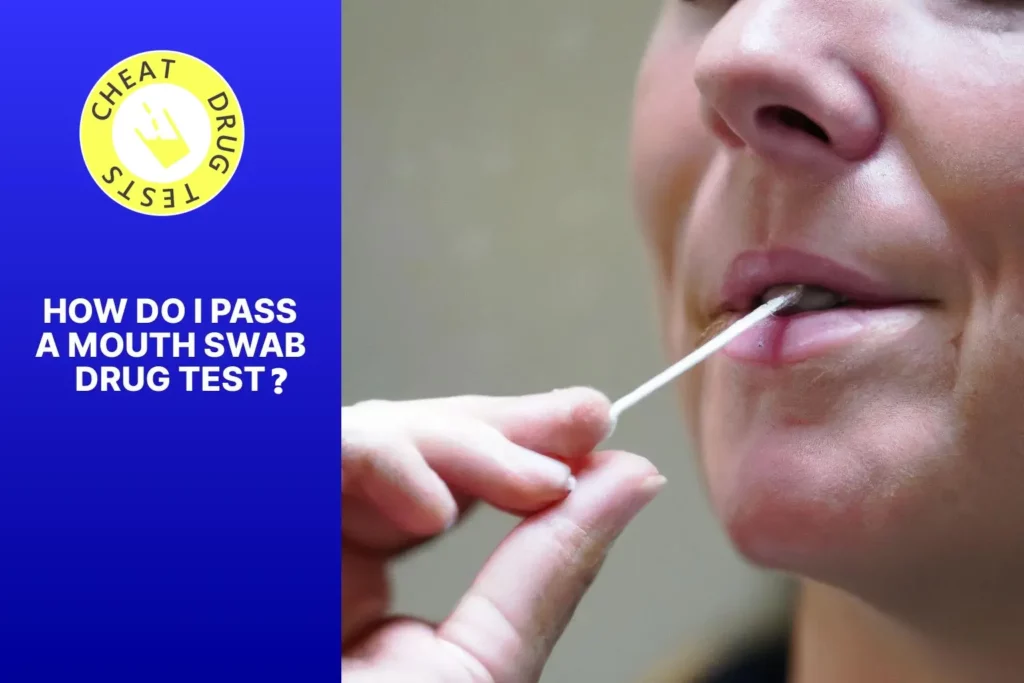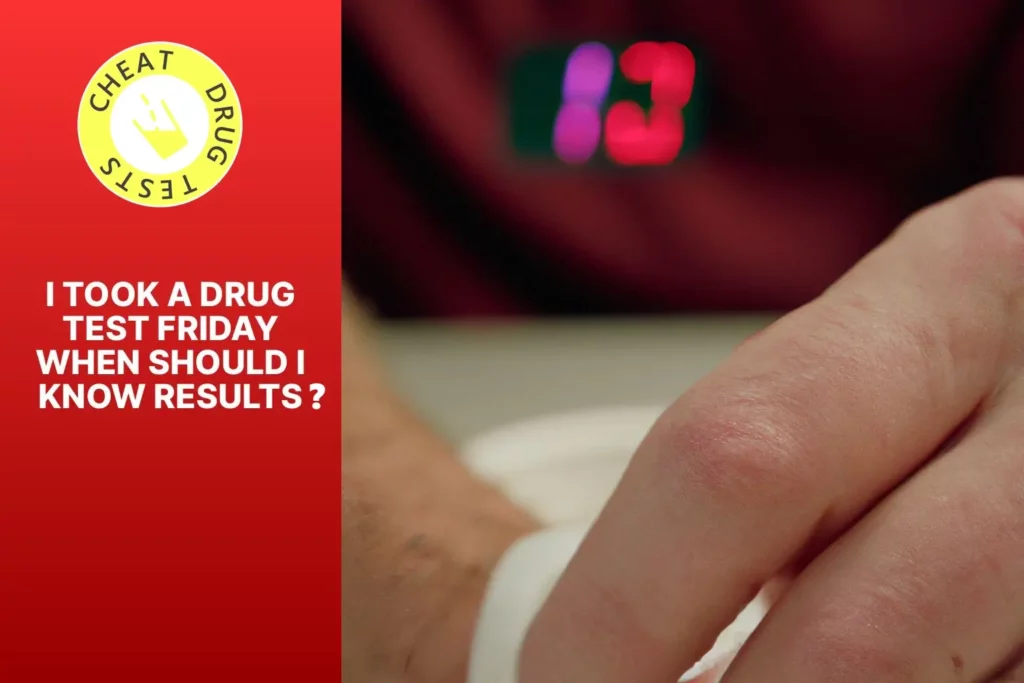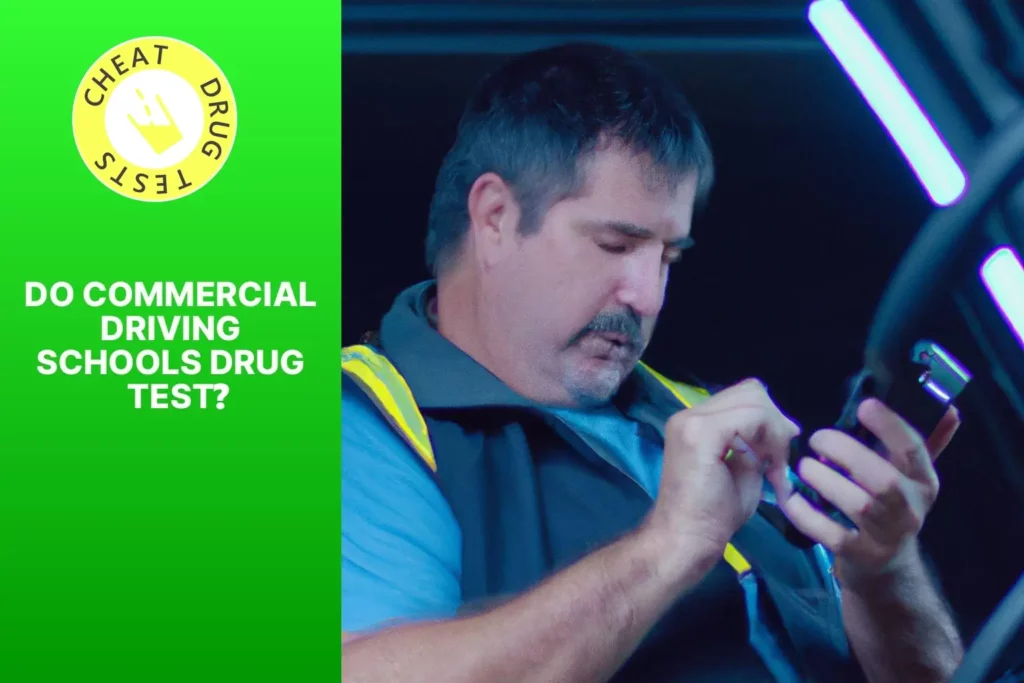An inconclusive drug test result can be puzzling. What does it mean? I, a urologist with expertise, can explain.
It means the test was unable to decide if drugs were present in the person’s system. This could be due to wrong sample collection or testing issues. So, an inconclusive result doesn’t mean drugs were taken. It just means more investigation is needed.
More testing or procedures are done to get a definite result. For instance, the same sample can be tested using better techniques. Or, different tests can be done. The aim is to get more info and make sure the result is accurate.
It’s important to not think of an inconclusive drug test result as either positive or negative. It’s just a time of uncertainty that needs further investigation and action. Employers and individuals must be patient until a conclusion is reached.
Here’s something interesting: A study in the Journal of Analytical Toxicology found that 5-14% of urine drug screens are inconclusive.
Understanding Inconclusive Drug Test Results
Grasping inconclusive drug test results can be tricky. It involves interpreting the results of a urine test for pre-employment drug screening. When the result is inconclusive, it signifies the test could not decide if drugs were present or not in the individual’s system.
Frequently, an inconclusive result is due to the urine sample given by the individual being diluted or tampered. Dilution happens when too much fluid intake before the test increases water content in the urine, which can hide the presence of drugs. Adulteration is any planned meddling with the sample to change its composition and deceive the testing process.
Inconclusive results may also result from technical mistakes during the sample’s analysis. These errors might come from problems with the equipment’s calibration, improper storage and handling of samples, or human mistake during testing procedures.
An excellent true story explains this well. In a big pharmaceutical company, inconclusive drug test results caused a major delay in hiring new employees. The company was having trouble locating suitable candidates who could pass their strict pre-employment screening process. However, after dealing with technical errors and implementing firm steps to stop dilution and adulteration, they could smooth their hiring process and guarantee precise drug test results.
Comprehending inconclusive drug test results is vital for employers and individuals alike. It needs cautious consideration of different aspects that could affect the outcome of a test. By understanding these nuances, we can take informed decisions relating to employment eligibility and make sure reasonable and precise drug screening processes.
Types of Drug Tests
Drug tests are an essential part of various important processes, like pre-employment screenings or monitoring sobriety during treatments. These tests detect substances in a person’s system and provide insight into their health. There are multiple types of drug tests used for this purpose.
It is important to understand the different drug testing methods to interpret results correctly. Knowing the advantages and limitations of each type helps. For example, a urine test is non-invasive and cost-effective, but it may not detect some drugs. Blood tests, hair tests, saliva tests, and sweat patches are also used. Each has unique properties that make it suitable for certain scenarios.
When a drug test result is unclear or falls within a gray area, further analysis or repeated testing may be needed. Urologist Rebecca Stephens states: “Inconclusive drug test results may be due to sample dilution or contamination, laboratory errors, or substances that affect accuracy. It’s important to consider these possibilities and take appropriate action.”
Understanding the variations and characteristics of drug testing methods allows for more informed decisions about testing protocols and result interpretations. With knowledge, we can maintain a safe and drug-free environment and ensure accurate evaluations. Keeping up with advancements in drug testing technology can help us come up with effective strategies to fight substance abuse.
Importance of Inconclusive Results
Inconclusive drug test results are important in pre-employment screening. They show uncertainty. It is vital to comprehend what these results mean, as they can have huge effects on a potential job.
If employers face inconclusive results, they must be careful. They should check if the test was accurate, the collection process was done properly, and the substances that caused the inconclusive result. It is necessary to be careful to avoid wrong assumptions and unfair judgments.
Inconclusive results could be due to dilution of urine or interference from medications or ingested substances. To get a reliable result, more tests or investigations must be done.
Contrary to what some think, inconclusive results do not always mean guilt or drugs. They just signal doubt or difficulties in testing. Employers should look at all the options before making decisions that could change someone’s career.
The Journal of Clinical Chemistry reports that 9% of drug tests using urine samples are inconclusive. This demonstrates the importance of understanding and tackling this issue to ensure everybody is treated fairly.
Interpreting Inconclusive Results
An ‘inconclusive drug test result’ is when the outcome of a urine test is unclear. Reasons for this include: improper handling of the sample, interference from meds, sample contamination, adulteration, improper storage, and testing method.
Individual characteristics, like metabolism and hydration levels, can also affect results.
Let me tell you a story from my urology practice. A patient had an inconclusive result, despite not consuming any illicit substances. His prescription medication had interfered with the test.
This shows how important it is to consider all factors when faced with inconclusive results.
To sum up – understanding the intricacies and being aware of individual characteristics will help ensure accurate interpretations in drug screening processes.
How to Handle Inconclusive Results
Frustrating inconclusive drug test results? Don’t worry – just follow this 5-step guide!
- Request a retest: Ask the testing facility if they can schedule one as soon as possible.
- Provide additional samples: Possible for urine, hair follicle or saliva.
- Consult medical professionals: Get a urologist or toxicologist to review your results and advise on any further tests.
- Understand potential causes: Dilution, medications/supplements, inadequate sampling techniques.
- Follow company policies: Keep communication open and adhere to their protocols.
Unique cases? Seek out professionals familiar with drug testing procedures for personalized guidance. Take control of the situation. Take proactive steps to resolve the inconclusive result. Know better than to speculate and risk missed opportunities. Empower yourself – handle it promptly and effectively!
Conclusion
As a Urologist, I can explain that an inconclusive drug test result means the test can’t give definitive results on drugs in someone’s system. To get the correct answer, further tests may be needed.
This can be annoying for employers and employees. It creates doubt and delays the hiring process. Wrong results can cause unfair issues for the person. So, it’s important to understand why these inconclusive results happen and how to fix them.
There are several reasons why a drug test could have an inconclusive result. For example, if the sample is not collected right or if it is mishandled during transportation. Contamination of the urine sample or interference from medications can also mess up the results.
To avoid inconclusive drug test results, it is essential to follow strict protocols during collection and transportation. Also, the people doing the tests should be trained and certified. That way, you’ll get reliable results.
Frequently Asked Questions
FAQs about Inconclusive Drug Test Results:
Q1: What is an inconclusive drug test result?
A1: An inconclusive drug test result occurs when the urine sample provided during a drug screening does not provide a clear determination of drug use. It may indicate that further testing or confirmation is required.
Q2: How does an inconclusive drug test happen?
A2: An inconclusive drug test can happen due to various factors, such as insufficient urine sample, dilution of urine, contamination, or technical errors during the testing process.
Q3: What should I do if I receive an inconclusive drug test result?
A3: If you receive an inconclusive drug test result, the employer or testing facility may request a retest or further testing to obtain a conclusive result. Follow their instructions and cooperate fully.
Q4: Does an inconclusive drug test mean I have failed the test?
A4: No, an inconclusive drug test does not automatically mean you have failed the test. It simply indicates that the initial test did not provide a definitive result and further steps are necessary to establish the presence or absence of drugs.
Q5: Can an inconclusive drug test result be caused by medications I am taking?
A5: Yes, certain medications can potentially contribute to an inconclusive drug test result. It is important to disclose any medications you are taking before the test to avoid any confusion or misinterpretation of the results.
Q6: Will an inconclusive drug test result affect my job prospects?
A6: The impact of an inconclusive drug test result on job prospects may vary depending on the employer’s policy. Some employers may require a negative test result before considering an applicant for employment, while others may proceed with further testing.
Cheat Drug Test articles & impartial reviews are funded by affiliate commissions, at no extra cost to you, our awesome readers. Learn more



